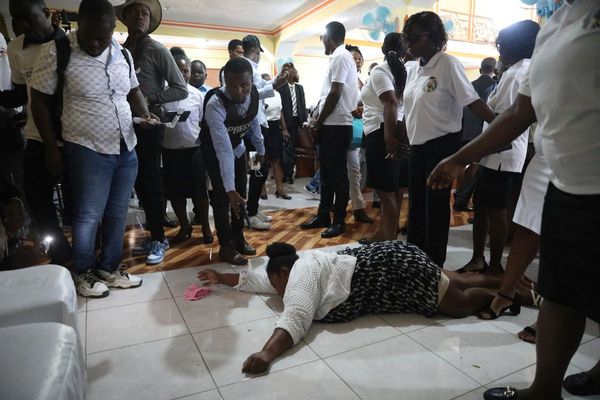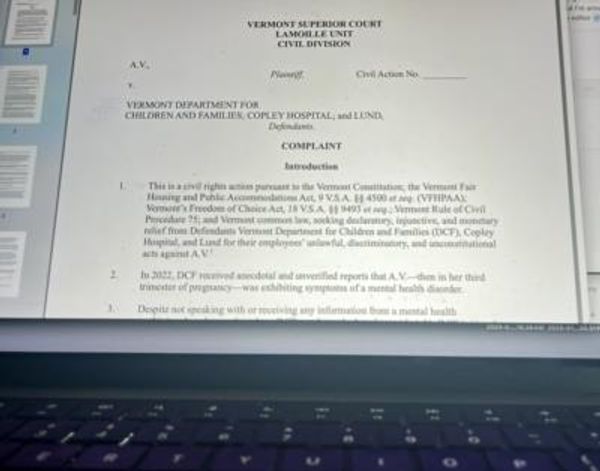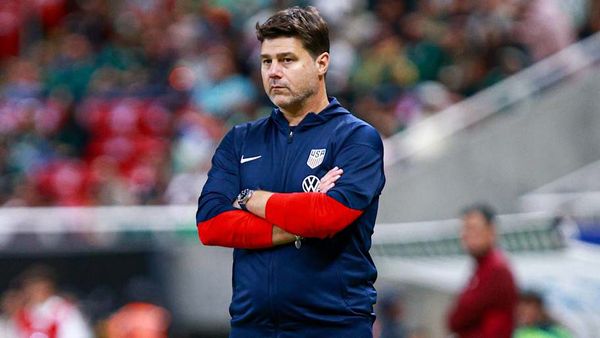
Metropolitan police officers have been instructed to increase intelligence-gathering activities at London schools in response to the Israel-Hamas war, ramping up concerns among human rights groups about the surveillance of children.
Officers were briefed to “increase their visible patrols” at schools and engage with school staff in order to obtain information about “community tensions”, according to a letter sent to headteachers.
In the document, Det Ch Supt Clair Kelland said the results of communications between the police officers and school staff would be “fed back to help our intelligence and information-gathering”.
According to the Met, the aims of the increased policing activities in schools are “keeping young people safe, improving trust and confidence in the police and deterring them from criminal activity”.
The letter, which was obtained by the investigative journalism organisation Point Source, also said it wanted police officers stationed at schools, known as safer schools officers, to help to create “safe spaces” within education establishments in collaboration with school staff.
The letter was addressed to the headteachers of schools in Wandsworth, Kingston, Merton and Richmond.
Stafford Scott, a veteran community campaigner, said: “It’s very likely these actions will stereotype and criminalise young people, especially those from minority backgrounds.
“Trust and confidence in the police in the communities that I deal with is very low. Rather than reassuring children, their presence in schools generally causes alarm and concern on the basis that they disproportionately target children from ethnic minorities. It’s hard to see how this plan will achieve any of its stated objectives.”
The police monitoring group Netpol also believes that the increased focus on schools by the police is likely to have a negative impact on students.
“This increased surveillance of children, and specifically on the ways that they are talking about political issues, can only have negative consequences,” said Kevin Blowe, coordinator of Netpol. “It will have a chilling effect on the open and honest discussion of ideas in schools, because young people will be rightly afraid that what they may say could ultimately be used by the police against them and their communities.”
Jun Pang, a policy and campaigns officer at the human rights organisation Liberty, said: “By routinely engaging with school staff to obtain information relating to students, the police are undermining the relationships and the trust that students and teachers need in order to share ideas and develop critical thinking.
“School should be a place where children and young people are able to express themselves, discuss the difficult issues of the day, seek information, and potentially explore feelings of grief or anger about, for example, what the British government may or may not be doing.
“Increased police patrols and surveillance creates a chilling effect that stops these important conversations from taking place.”
Human rights organisations see the latest ramp-up of police activity within schools as part of a broader trend.
In January, a report by the Runnymede Trust showed that nearly 1,000 police officers were operating in UK schools, around half of whom were based in London.
Officers in schools have faced increasing scrutiny in recent years, especially after a black teenage girl, referred to as Child Q, was strip-searched by Metropolitan police officers in a Hackney school in 2020 after she was wrongly accused of possessing cannabis.
In September, Scotland Yard admitted overusing its power to strip-search children after Met officers were told they would face disciplinary proceedings over allegations that their search of Child Q was inappropriate and amounted to discrimination owing to her race and sex.
In the past, police intervention in schools through Prevent, a government anti-radicalisation programme, has been criticised as heavy-handed, discriminatory and ineffective.
A Met spokesperson said: “Across London there are more than 300 safer schools officers working to reassure communities and protect children from those who would exploit current tensions to commit hate crimes. We are listening and acting on their concerns.
“Since the attack we have conducted more than 700 visits to schools, including extra reassurance patrols, and we will continue to do so.”
The Met declined to comment on the data protection protocols that it uses when it is gathering intelligence from schools.







